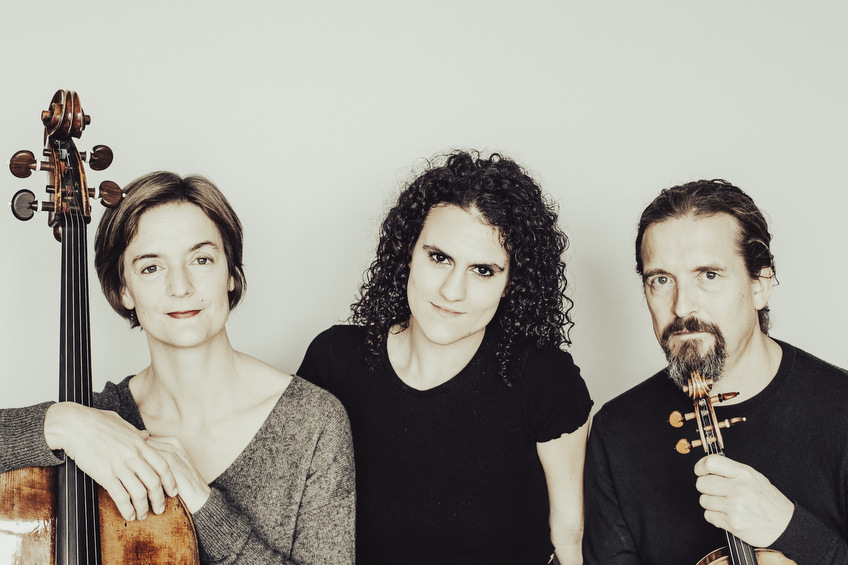On March 30, the Tetzlaff-Tetzlaff-Dörken Trio plays music of Franz Schubert and Pyotr Ilyich Tchaikovsky.
Piano Trio No. 1 in B-flat Major, D. 898
Schubert
One of only two piano trios composed by Franz Schubert in the course of his tragically brief lifetime, the B-flat Piano Trio is a majestic, sweeping work of lyrical beauty and melodic inventiveness. Written in the fall of 1827 — concurrently with work on his Winterreise song cycle and just one year prior to the composer’s death at the age of 31 — the B-flat Piano Trio is a remarkable accomplishment and a valiant nod to that giant of the piano trio repertoire, Ludwig van Beethoven, for whom Schubert held great admiration.
“One glance at Schubert’s Trio and the troubles of our human existence disappear and all the world is fresh and bright again” — Robert Schumann
Listen for:
- Melodic material that is doubled by both hands in the piano, as in other works by Schubert.
- The delicate pianissimo moments throughout the work’s four movements.
- The third movement’s folk-inspired Ländler rhythms, drawn from an Austrian country dance form, alternated with waltzing rhythmic figures.
Piano Trio in A Minor, Op. 50
Tchaikovsky
Although initially cold to the idea of composing a piano trio in the Western European tradition, in 1881 upon the death of his close friend Nicolai Rubinstein, Tchaikovsky felt compelled to commemorate the renowned pianist with a suitably virtuosic pianistic work. The A Minor Piano Trio, subtitled “In memory of a great artist” and performed on the first anniversary of Rubinstein’s death, went on to inspire a tradition among Russian composers — Rachmaninov and Shostakovich among them — of commemorating admired musical figures through in memoriam piano trios.
Listen for:
- Tchaikovsky’s precise metronomic markings, which he indicated were to be followed exactly by the musicians.
- The folk-inspired theme and variations of the work’s extended second movement, a nod to Rubinstein’s fondness for folk music.
- Similarities to Beethoven’s Piano Sonata No. 32 in C minor, Op. 111.

